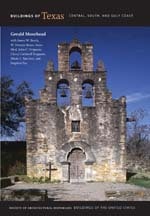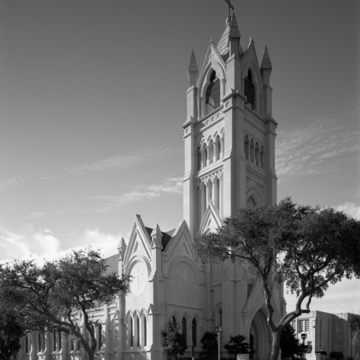You are here
Holy Family Catholic Church (St. Patrick Catholic Church)
The most visible church building in the West End is Clayton's parish church St. Patrick's. This Gothic Revival church, built of brick and faced with stucco, is much more representative of Clayton's ecclesiastical use of Gothic architecture than Grace Episcopal Church ( GV41) . During the Storm of 1900, St. Patrick's 225-foot-high Ménard Memorial Tower was blown down onto the church, completely crushing the nave. Clayton's reconstruction was completed in 1902. The present tower, which is one hundred twenty feet tall and constructed of reinforced concrete, was built to Clayton's design in 1922, six years after his death. In 2009, in the aftermath of Hurricane Ike, the Archdiocese of Galveston-Houston consolidated all eight parishes in Galveston and on the Bolivar Peninsula with St. Patrick's, which was rededicated to the Holy Family.
Writing Credits
If SAH Archipedia has been useful to you, please consider supporting it.
SAH Archipedia tells the story of the United States through its buildings, landscapes, and cities. This freely available resource empowers the public with authoritative knowledge that deepens their understanding and appreciation of the built environment. But the Society of Architectural Historians, which created SAH Archipedia with University of Virginia Press, needs your support to maintain the high-caliber research, writing, photography, cartography, editing, design, and programming that make SAH Archipedia a trusted online resource available to all who value the history of place, heritage tourism, and learning.















